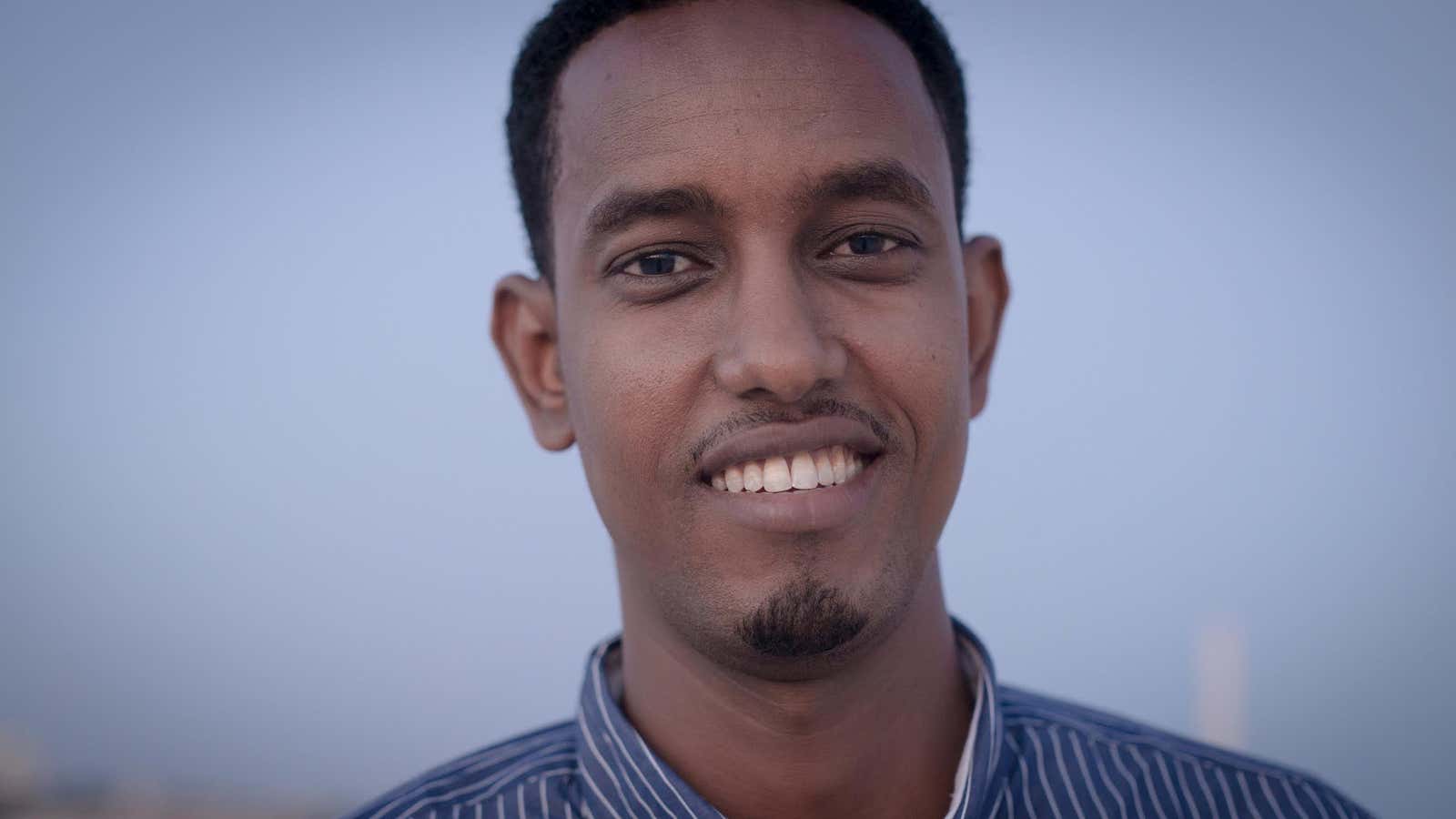Somalia’s government is investigating the killing of Abass Abdullahi Sheikh Siraji, a rising young politician in the country, who was shot dead in an apparent accident by the bodyguards of another government official on Wednesday night (May 3).
Siraji was killed when the security team of the country’s auditor general, Nur Farah, opened fire on the car he was travelling in. Farah has said that his guards thought the vehicle was transporting a suicide bomber.
At 31 years old, Siraji, the minister of public works and reconstruction, was Somalia’s youngest member of cabinet.
Somalis all over the world expressed their shock, sorrow, and anger at the killing on social media. Somali president Mohamed Abdullahi Farmaajo, who was on a state visit to Ethiopia, said he would cut short his trip to attend the state burial of Siraji.
“I’ve ordered the security heads to immediately get to the bottom of this unfortunate tragedy and make sure the perpetrators are brought to book,” the president wrote on Twitter.
After more than two decades of civil war and violence, Somalia had started to regain a semblance of peace in recent years. Siraji was one of a number of Somali refugees and expats who returned to the country to invest in its rebuilding—a phenomenon that was especially apparent during recent parliamentary and presidential elections, where a third of elected parliamentarians held foreign passports, compared to two-thirds of the presidential candidates.
Siraji was among the youngest of the newly-elected members of Somalia’s diverse parliament, representing Jubaland state in southern Somalia. He fled Somalia with his family at 7 years old, and grew up in the Dadaab refugee camp in northeastern Kenya. He finished primary and secondary school education in the camp and then completed a bachelor’s degree in business administration in Nairobi before returning to Somalia last year.
In early February, Siraji was among the lawmakers who cast their ballots in an election that saw Farmaajo—a popular Somali-American—voted in as Somalia’s ninth president.
Prior to becoming a politician, Siraji worked with the World Health Organization and the Food and Agriculture Organization, according to Wakiil, an online initiative that monitors Somali electoral politics. Last month, he was among the speakers at TEDx Mogadishu, where he spoke about the hope and the drive that pushed him to join politics.
“For the future of Somalia and the work required, each of us has a part to play,” Siraji said. “As for my part, I will work for peace, development, and for reaching brighter times.”
Despite the country’s progress, it still remains under threat by the militant group Al-Shabaab, who continue to undermine any confidence the country has in the safety of its public spaces; claiming the lives of artists, comedians, journalists, and politicians, in recent attacks.
